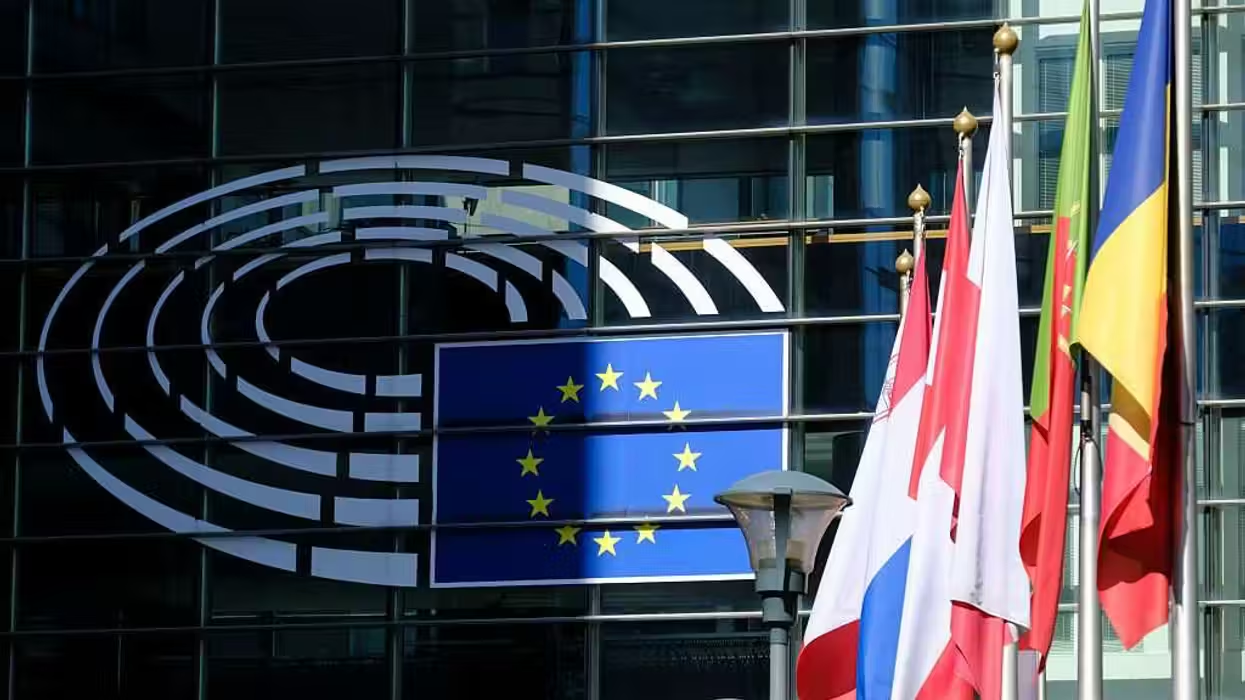
Photo by Thierry Monasse/Getty Images

Across the Atlantic, freedom lost to red tape. The same disease is creeping into America’s tech sector.
Americans are accustomed to innovation improving their lives. From smartphones to artificial intelligence, breakthroughs keep coming — and most of them happen in the United States, where freedom fuels invention. But across the Atlantic, the story is very different. Europe’s regulators have built a bureaucracy that smothers creativity.
The lesson is simple: Innovation thrives where government steps back, not where it rules from Brussels.
Europe doesn’t need more commissions or consultations. It needs courage to scrap bad laws and let innovation breathe again.
A recent analysis from the Information Technology and Innovation Foundation drives home the point. All seven of the world’s trillion-dollar tech firms are American. Europe can claim only 28 companies worth more than $100 billion. Over the past decade, European firms raised about $426 billion — $800 billion less than their U.S. counterparts.
Rather than learn from failure, Brussels tightened its grip — proving again that when regulators fail, they regulate harder. Their Digital Markets Act and Copyright Directive saddle companies with costly mandates that make life harder for both innovators and consumers.
EU regulators insist that their rules ensure fairness, transparency, and competition. In reality, they’re strangling convenience and driving users crazy.
Take Google Maps. Because of DMA rules, Europeans can no longer click directly into expanded map views. As one user complained on Reddit, it’s become “a severe pain in the butt.” The new restrictions also hobble tourism. Google Search can’t link directly to airlines or hotels, forcing travelers through clunky intermediaries that waste time and money.
The Copyright Directive makes things worse. It tells search engines to display only “very short” snippets of news articles — without defining what that means. Bureaucrats promise to judge “the impact on the effectiveness of the new right,” which means nothing. By contrast, American courts have long recognized that snippets are fair use and help people find what they need. U.S. policy treats information as a public good; the EU treats it as a privilege controlled by the state.
The damage goes beyond search results. The EU now forces Apple and other “gatekeepers” to make their devices interoperable with third-party software — a costly demand that undermines engineering efficiency. Features like iPhone-to-Mac mirroring and real-time translation could disappear from European markets because of it.
As Cato Institute’s Jennifer Huddleston noted, “The real-time translation feature would be immensely helpful in Europe with so many languages; however, the consequence of European regulation is that it might not be available.”
RELATED: Can anyone save America from European-style digital ID?

And when companies don’t comply fast enough, Brussels slaps them with massive fines. Apple got hit with 500 million euros (around $580 million), Meta with 200 million euros (around $232 million) — punished not for misconduct but for trying to innovate.
The EU now says it will review whether the DMA “achieves its objectives of ensuring contestable and fair digital markets.” That’s bureaucratic code for “we might make it worse.” Meanwhile, the Copyright Directive’s vague language grows even more dangerous in the age of AI, where machine learning depends on large-scale data use that Brussels can’t seem to comprehend.
Europe doesn’t need more commissions or consultations. It needs courage to scrap bad laws and let innovation breathe again. If Brussels wants to compete with America, it should stop punishing success and start trusting its own entrepreneurs. A lighter-touch approach has worked for the United States — and it could save Europe from technological irrelevance.
Ross Marchand